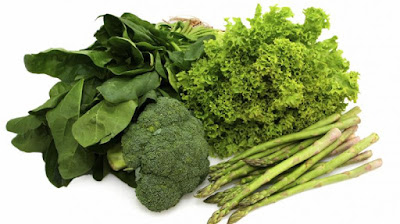Not Liking Green Veggies Is Due To Your Genes - Nirmal Singh 3c
Nirmal Singh 3C finds
an interesting study that says a child forms a strange dislike to the
vegetables which indeed has nothing to do with their parents. According to a
new study, due to genetic mutations, youngsters try new foods while many other are
fussy eaters.
Nirmal Singh 3C thinks
that this study will help in paving way for children who are fighting with
childhood obesity epidemic. According to
a new research in the US, DNA is linked with the kind of taste a toddler would
develop which is why they are fussy about their eating habits which is why they
develop a bitter taste at the age of four.
Nirmal Singh 3C would
like to get specific with the names, as TAS2R38 is associated with dietary
variety other called CA6 that puts a child out of control during mealtimes.
People generally blame parents for children being fussy
about their food habits, however that is not the case, as it is a matter of
nature and not nurture.
This was further corroborated by Natasha Cole who said, it's
not surprising children who are genetically 'bitter-sensitive' may be more
likely to turn down Brussel sprouts or broccoli, for instance.
Doctoral student Ms Cole, a member of an obesity prevention
program at Illinois University, hopes it can help identify the determinants of
picky eating in early childhood.
Nirmal Singh 3C
thinks that these genes control chemosensory organs that are found in tactile
receptor systems until it was known. As of now these were known to children’s
picky eating habits.
Ms Cole and team pinpointed the variants after the selection
of five genes that define the perception of taste. It is also found that
chemosensory factors such as odour, colour and texture may also affect our
eating behaviors.
Nirmal Singh 3C thinks
that it is the responsibility of the parents to understand the taste of food
that their children prefer eating.
Here’s what children should eat during their young age for
their brains:
Blueberries
Blueberries is a super brain food, it helps in boosting
memory and should be included in every day’s diet. It has antioxidants and vitamic C present in
it which help improving cognitive ability and memory, claimed the University of
Florida.
Milk
Of course, every child should consume a glass of milk every
day. The University of Kansas Medical Centre says, milk could improve the
functions of the brain, due to the naturally occurring antioxidant glutathione
in it.
Nuts and seeds
A handful of dry fruits, such as pumpkin seeds is a good
source of zinc that plays an important role in shaping one’s memory; walnuts
are good source of omega-3 fatty acids.
Green vegetables
Green vegetables, such as broccoli, kale and spinach are a
good source of iron, vitamin E, K and B9 which are very important for the
development of brain cells.




Comments
Post a Comment